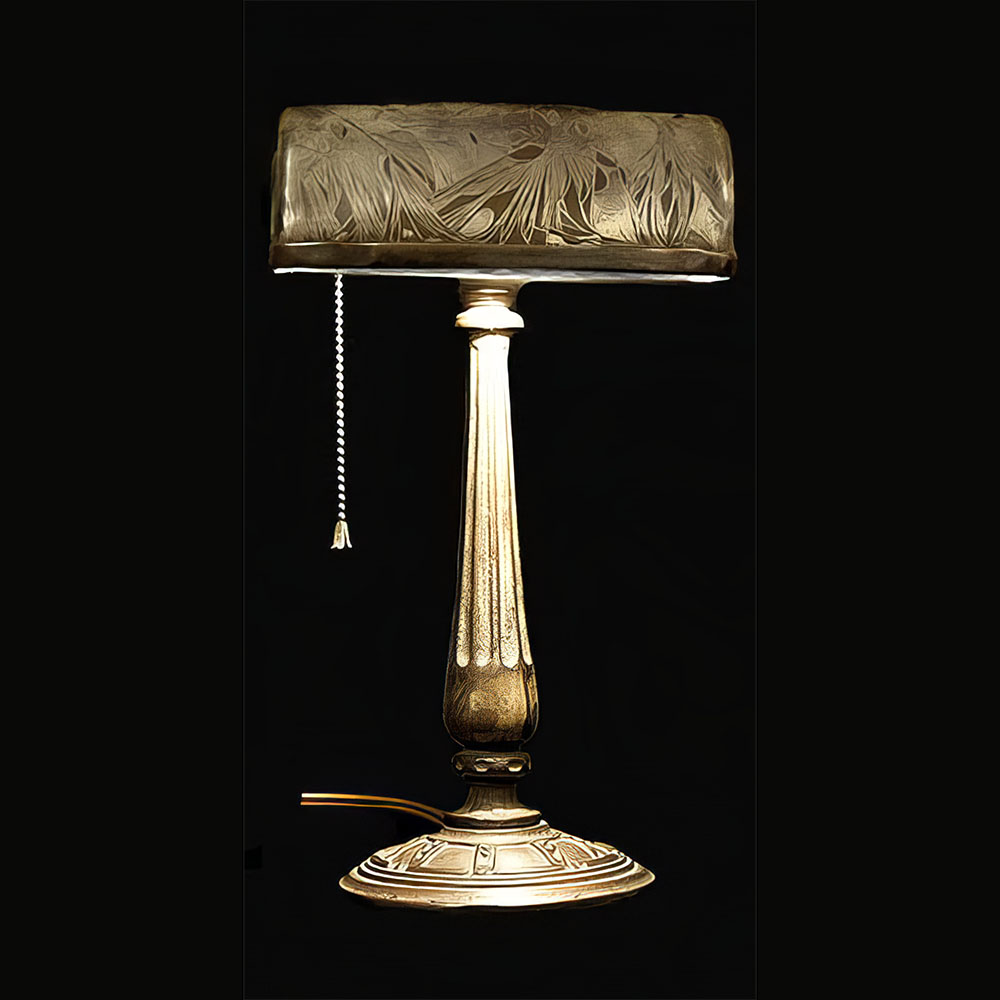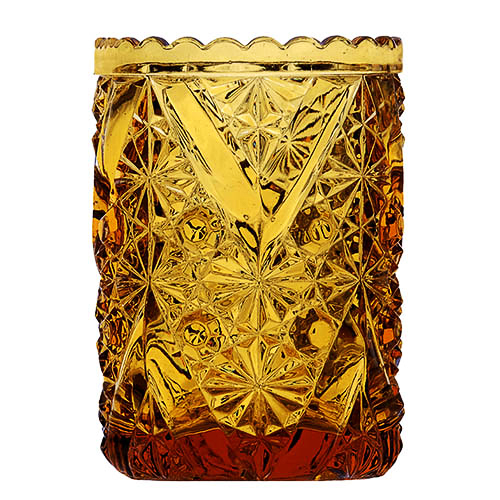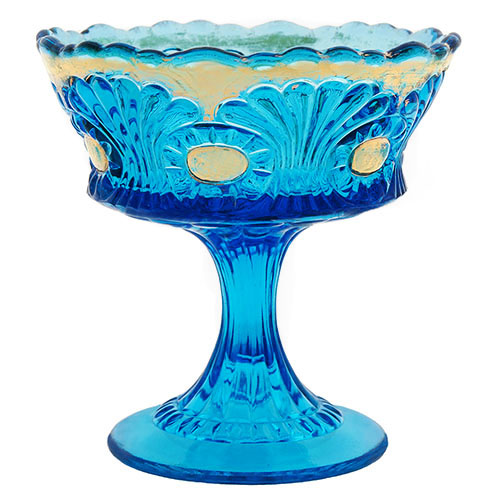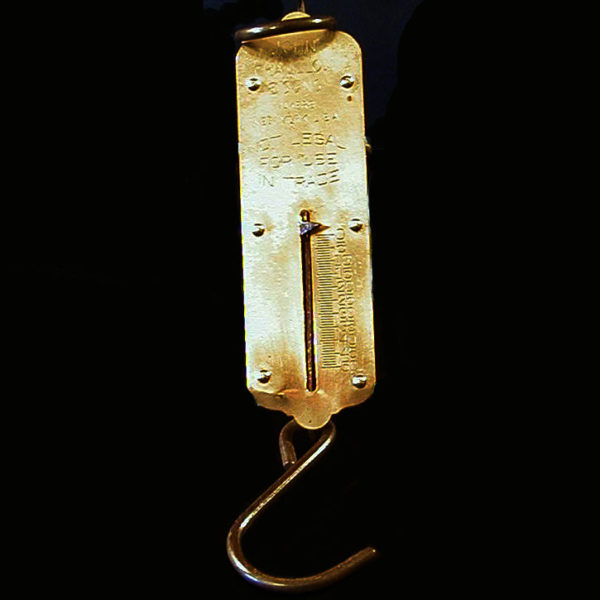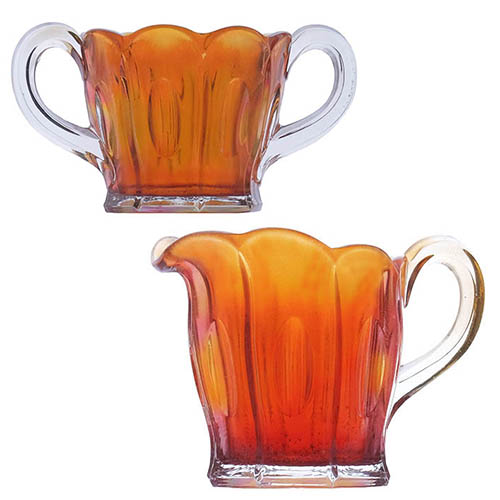Featured is a wonderful Antique Banker’s Table Lamp.
- A light fixture consists of a light source (bulb or flame), an energy source (electric, gas, or solid fuel), and the fixture’s body.
- The body takes many forms, from ceiling mounted to wall mounted to floor standing to portable. Typically, historic lights include arms to support multiple light sources, since the wattage was not as high as is available today.
- A socket is mounted at the end of the arm, and frequently a shade is placed over the light source (a glass panel or globe, or a metal frame with fabric or paper over it), attached by a harp or bracket.
- All lights have some sort of base, some bases are weighted for a table or floor lamp.
- A plate is usually used to attach a sconce to the wall for wall-hung lights.
- Often a bell-shaped fitting with a chain or rod attached is used for lights hung from the ceiling.
- The materials used in the manufacture of historic lights vary widely, from brass to bronze to cast or forged iron to even wood.
- Some parts of the lamp may include adornments of cut, cast, or blown glass, ceramic elements, stained glass, or crystal.

